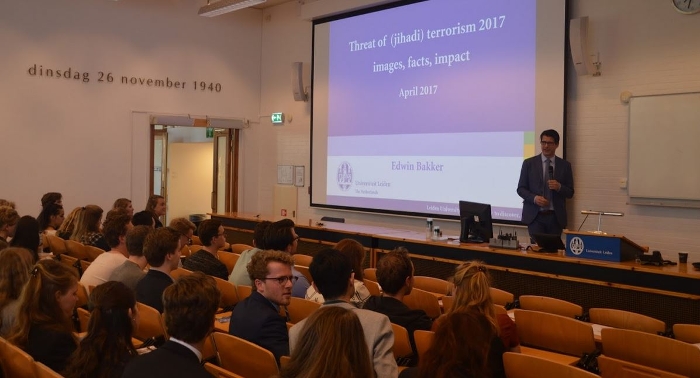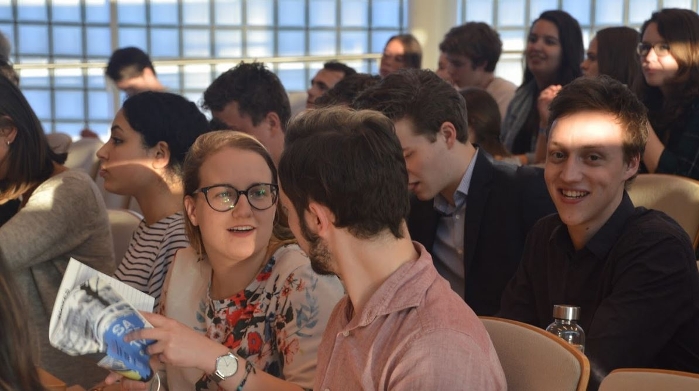
‘International isolation is not an option’
Security in the broadest sense of the word was the key focus in the Interfaculty Conference on 4 April in Leiden. With almost 200 attendees and such well-known speakers as Dick Schoof, Pieter van Vollenhoven and Ad Verbrugge, the first conference was a success.
‘We ought not to get paranoid, but at the same time we shouldn't be naive,' warned National Coordinator on Terrorism Prevention and Security Dick Schoof in his lecture. He was one of the speakers at the first Interfaculty Conference organised by the Study Association Platform (StOP), the overarching organisation for all the study associations. ‘Russian, Iranian and Chinese hackers are always trying to break into computer systems. They regularly gain access to confidential business information, which can be harmful for the Dutch economy. And when the caliphate of Islamic State eventually falls, jihadists will come back to the Netherlands.’

International isolation
The Netherlands is employing different measures in an attempt to avert these threats. In February this year the Intelligence and Security Services Act was expanded, giving the AIVD more authority to analyse data flows linked to terrorist suspects. When foreign fighters in Syria return to the Netherlands they will immediately be detained and questioned. Hacks by foreign governments are more difficult to combat, says Schoof. 'One thing is clear: international isolation is not an option. We have to continue to share information. And if we have to retaliate, we will do that in an international context, via the EU, the UN, NATO or our international courts of law. But we have to exercise extreme care because retaliation generally leads to further excalation of a conflict.’
IRA vs IS
How new is Islamic terrorism today? This was the question raised by Joost Augusteijn during his lecture. Augusteijn conducted years of research in Northern Ireland on the Irish Republican Army (IRA), and so is well placed to make a comparison with other terrorist groups. He showed that terrorism is an old phenomenon, and ever since it started it has gone in cycles. Whereas at the end of the 19th century terrorists were inspired by anarchy, later terrorists committed attacks based on their anti-colonial, social-revolutionary or religious ideology.

Not unique
‘Although the ideology changes, the ingredients of terrorism often remain the same,' says Augusteijn. ‘The large majority of terrorism has a regional goal, whether it's the IRA or Islamic State, both groups' main concern is to gain control over a particular area. Cross-border terrorism has remained fairly stable over all that time.' According to Augusteijn, Islamic State is not unique in killing innocent people, as they did during the attack on the Bataclan in Paris in November 2015. The paramilitary forces of the Ulster Defence Association (UDA) did something similar when they attacked a Halloween party in 1993 in Greysteel (Northern Ireland). Eight people lost their lives, both Catholics and Protestants. 'The present forms of terrorism are often labelled as unique. That's logical because it paves the way for changes in policy. But if you look at it from a historical perspective, you see that terrorism today is really not that different from in the past.'
Top photo: Dick Schoof, National Coordinator on Terrorism Prevention and Security
About the Interfaculty Conference
The Interfaculty Conference was organised by the Study Association Platform (StOP), the overarching organisation of all study associations. Each association put forward one speaker, which resulted in a varied mix of researchers and policymakers, each of whom approached the subject from his own field of expertise. Besides Schoof and Augusteijn, the other speakers included Pieter van Vollenhoven (Professor of Risk Management at the University of Twente), Ad Verbrugge (philosopher), Bert Leufkens (Chairman of the Dutch Medicines Evaluation Board) and Erwin Bakker (Professor of Terrorism and Counterterrorism at Leiden University).
